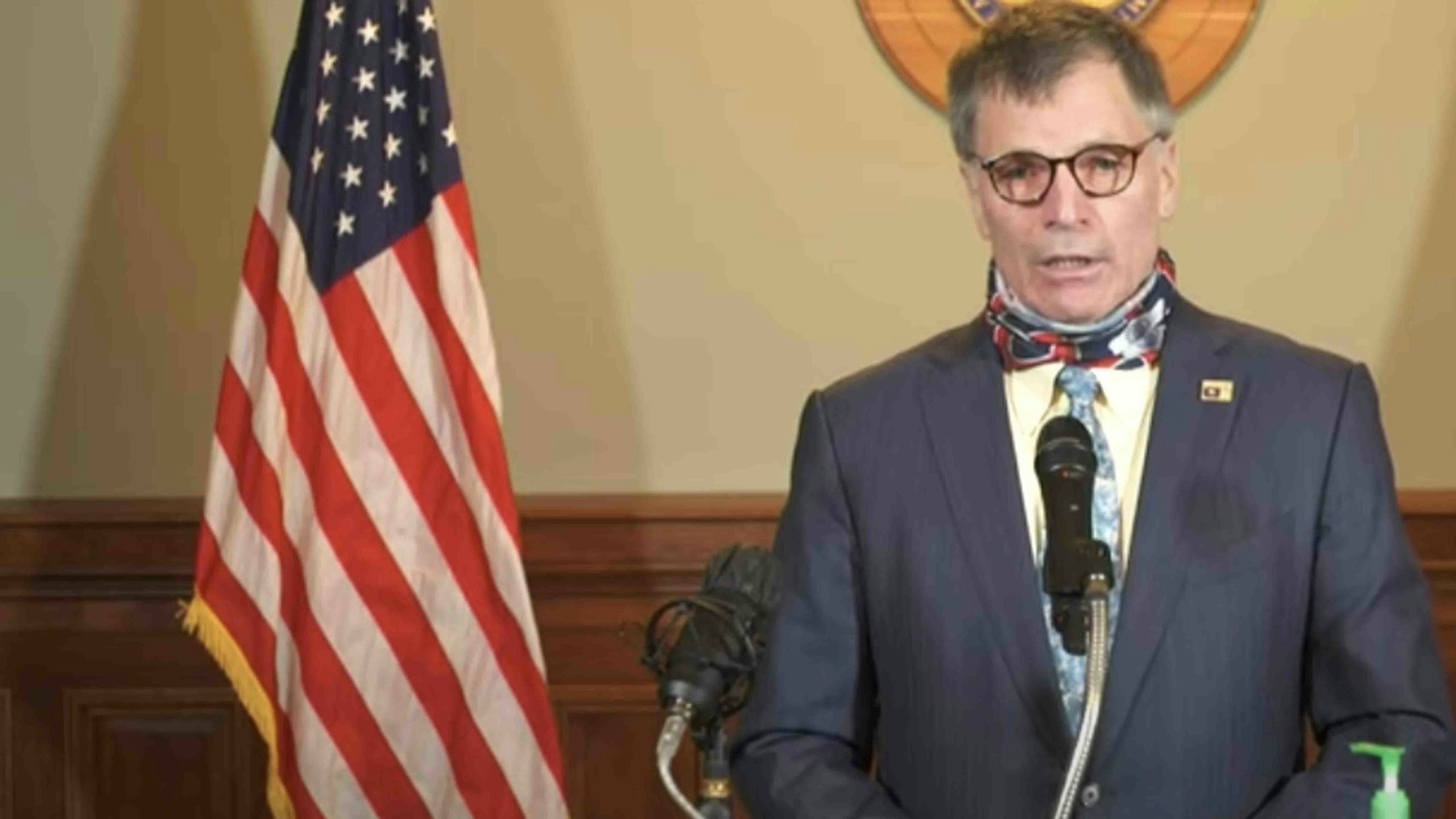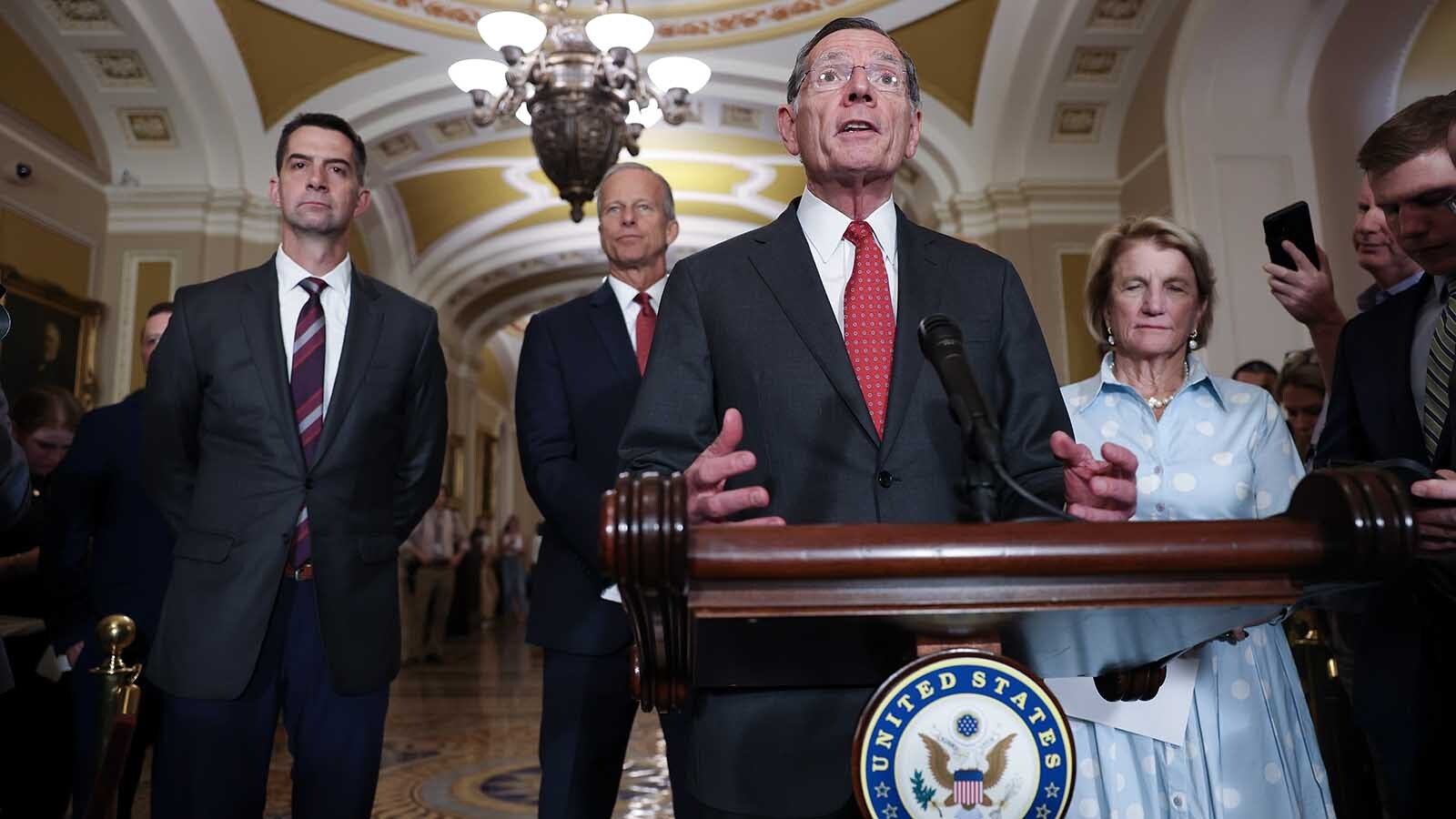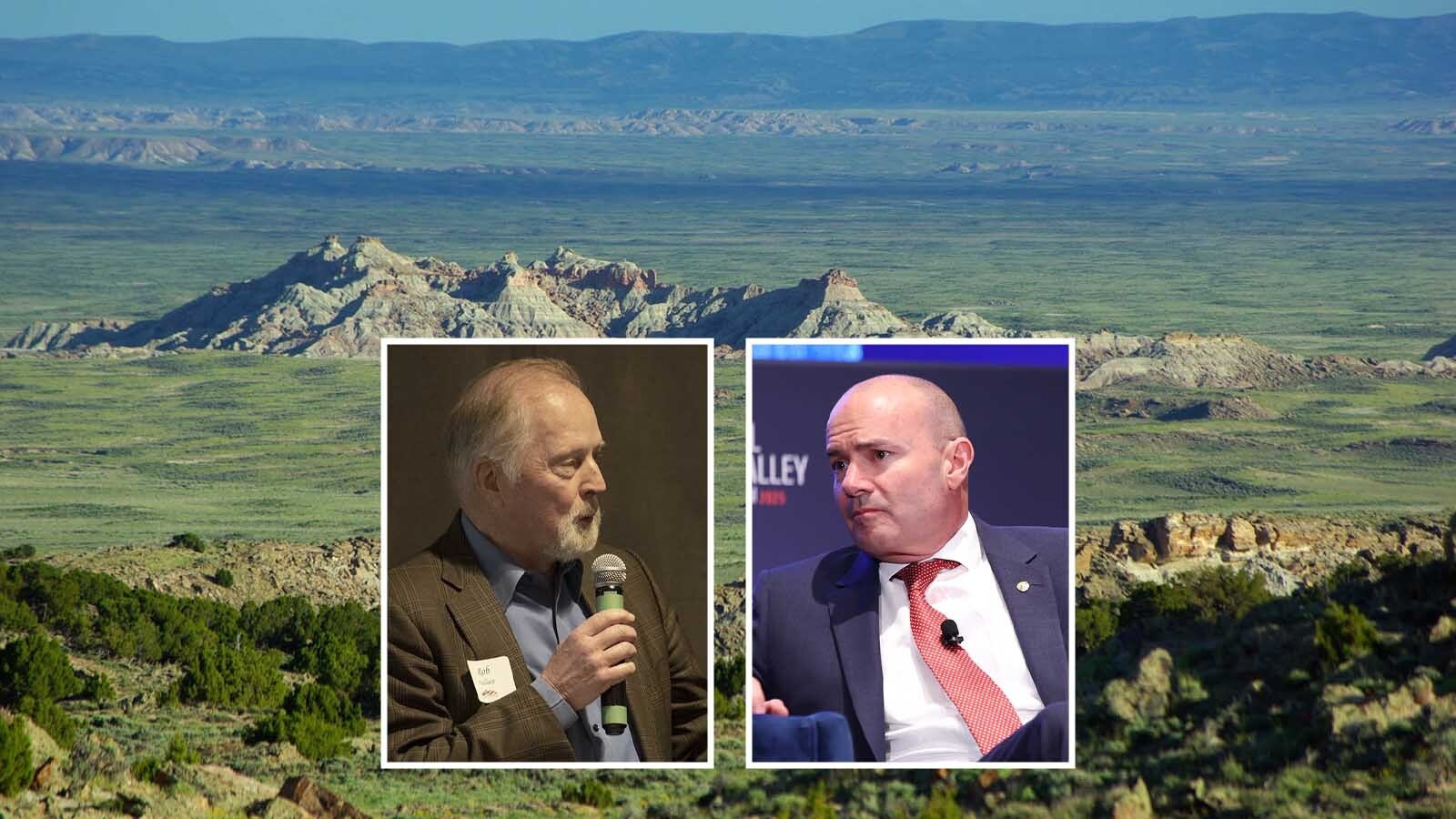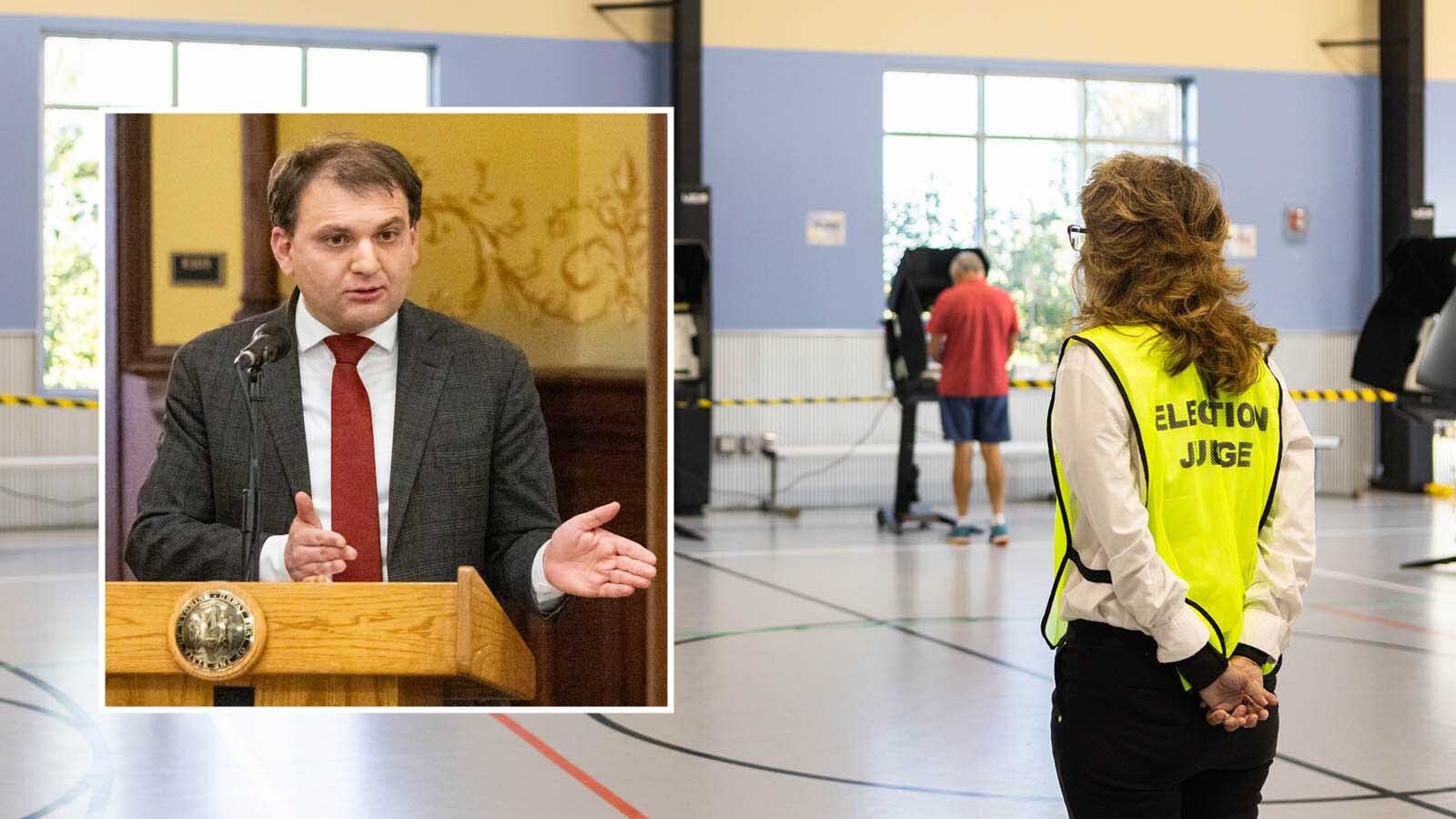Gov. Mark Gordon continued to criticize President Joe Biden’s moratorium on natural gas and oil leases on federal lands on Tuesday, saying he is working with other western governors to ease the impacts of the move.
“It’s a bipartisan devastation that is putting people out of work,” Gordon told radio host Glenn Woods during an appearance on “Wake Up Wyoming” Tuesday. “As we’ve seen over the last couple days, it’s just not a good, sensible energy policy.”
Biden issued an executive order in late January halting new oil and gas leasing on federal land to allow the Department of Interior to conduct a comprehensive review of the federal leasing program and existing fossil fuel leases.
Gordon told Woods that he has been working with other governors in the region to find ways to move forward from the lockdown, whether that be through a public awareness campaign or by taking legal action against the Biden administration.
Many Wyoming officials, from U.S. Rep. Liz Cheney to Wyoming Superintendent of Public Instruction Jillian Balow and U.S. Sens. Cynthia Lummis and John Barrasso, have spoken out against the moratorium.
Gordon added that he and Balow have been working together to ensure that the officials understand the challenges the state is now facing with the leasing lockdown.
“I just continually talk to anybody who will listen in Washington about what a devastation will be, not only to our schools, but to our entire economy,” the governor told Woods.
A University of Wyoming study commissioned by the Legislature concluded that a moratorium on oil and gas leasing on federal land could reduce Wyoming’s production by $872 million per year, costing the state more than $300 million a year in tax revenue.





